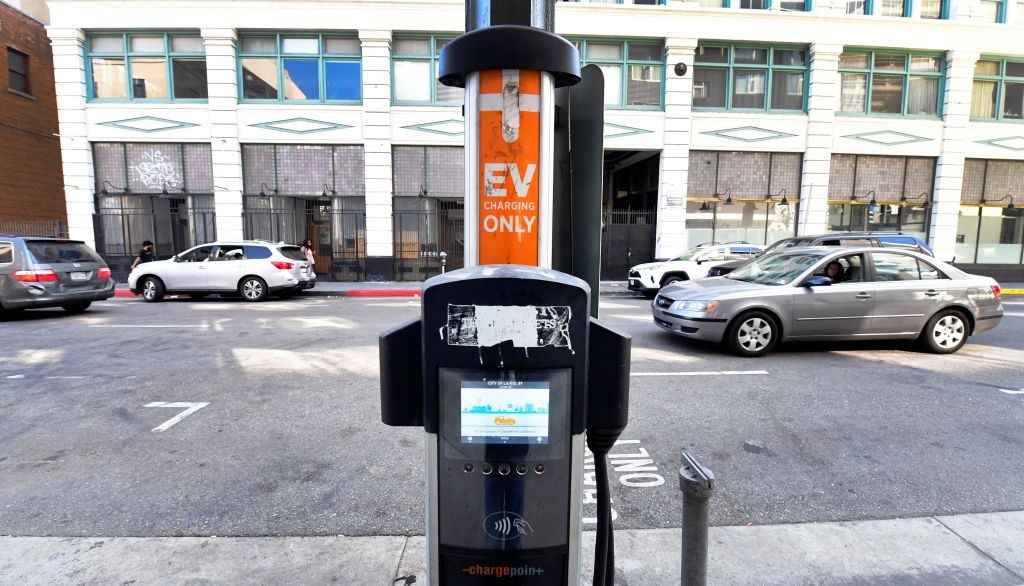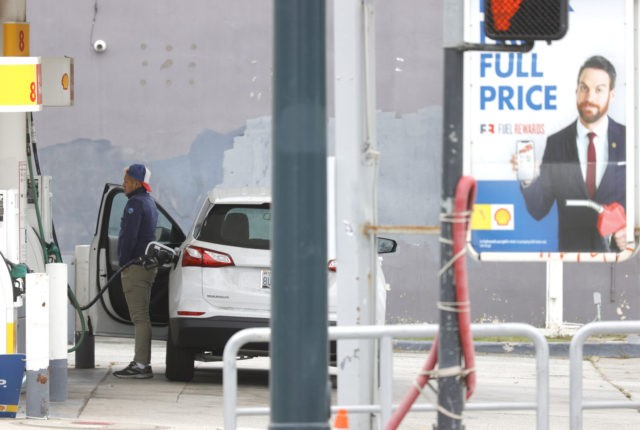The surge in fuel prices across the U.S. over the past year has hit poorer Americans the most, a report published Thursday details.
The Financial Times sets out price rises have hit the country’s gig economy drivers as much as everyday motorists, forcing many to overhaul the way they work or ditch their jobs entirely.
Uber and Lyft, the two biggest ride-hailing apps, are trying to ease the burden by encouraging a switch to electric vehicles, but the FT maintains many drivers are frustrated as the prices are weighing particularly on the bottom end of the income scale.
“Drivers seem to be driving less,” said Melissa Berry, editor at The Rideshare Guy, an industry blog.
This change in the way the gig economy works in response to fuel prices “has no doubt exacerbated the driver shortage Uber and Lyft have been periodically finding themselves in.”
China Joe has a message for all us working class peasants who have the audacity to complain about the Biden gas crisis. https://t.co/oqm1q6d0Hw
— Breitbart News (@BreitbartNews) November 24, 2021
Petrol prices, posted at corner stations, have been among the most visible indicators of accelerating inflation in the U.S., as Breitbart News reported.
A retreat in oil markets over the past week may bring down retail petrol prices, but so far drivers have yet to see this passed on at the pump.
The FT argues the reason for the oil market reversal — fears that the Omicron coronavirus variant could clamp down on mobility — will hardly cheer drivers on ride-hailing apps.

An Electric Vehicle charging station in Los Angeles, California. The Biden administration continues the push for alternative forms of transportation and energy, making the case for his $174 billion electric-vehicle proposal, urging automakers not to build zero-emission vehicles abroad for U.S. consumers and touting electric vehicles as America’s future. (FREDERIC J. BROWN/AFP via Getty)
To cover extra fuel costs, many gig drivers have adapted with changes including rejecting more customers who are far away. Others are quitting.
“Some drivers have been decreasing the amount of hours that they do. Some drivers have gone looking for other jobs,” said Beth Griffith, a former Uber and Lyft driver who heads the Boston Independent Drivers Guild.
An online poll conducted this week by The Rideshare Guy found some 91 percent of rideshare drivers worry about petrol prices, and about half of drivers were driving less. Twelve percent affirmed they stopped driving entirely as a result of high prices.
Travelers hitting the road for Thanksgiving this week will notice two things on their journey: they’ll have more company and gas prices in many states remain on the rise. https://t.co/UsPJmW0RKE
— Breitbart News (@BreitbartNews) November 23, 2021
The future for prices at the pump might be remaining steady at the moment, however others have argued the high price of gasoline is part of Democrats’ plan to make driving unaffordable for most Americans.
Washington Times opinion editor and Breitbart News columnist Charles Hurt said back in April the Biden administration’s push to get Americans from burning fossil fuel in their cars and into electric vehicles is real. He argued:
They make no secret about the fact that they … want [gas] at six dollars a gallon.
They want it at eight dollars a gallon. This is not a secret to them. The Green New Deal, the whole thing — all these people — their intent is to raise the price of gas so that it is so expensive that nobody can drive anywhere. They’re not kidding around about this.
This is not a joke to them, and they’re not embarrassed by it. […] They want gas to be at $20 a gallon. They want it to be like Europe because they want no one to be able to afford to drive anywhere. That’s their goal.
Ultimately higher prices on gas — either through increased taxation or government-driven restriction of supply — amount to a “regressive” tax more harmful to lower income and self-employed Americans, he argued.

COMMENTS
Please let us know if you're having issues with commenting.